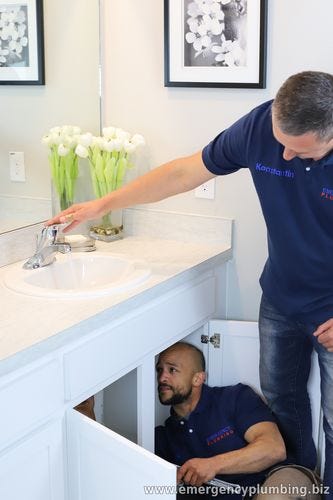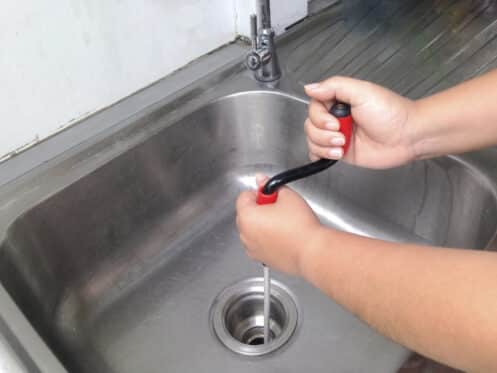Beginner's Guide to Bathroom Plumbing: Essential Guidelines
Beginner's Guide to Bathroom Plumbing: Essential Guidelines
Blog Article
Are you hunting for information and facts about General Plumbing Tips for New Homeowners?

For brand-new homeowners, understanding and preserving restroom plumbing can conserve both time and money by protecting against pricey problems down the line. Here are some important bathroom pipes pointers to assist you maintain everything running efficiently.
Get Ready For Cold Weather
Protect your pipelines from freezing during winter by protecting pipes in unheated locations like basements, attic rooms, and garages. During extreme cool, let cold water drip from taps served by exposed pipelines to assist stop cold.
Arrange Routine Upkeep
Take into consideration organizing annual examinations with a qualified plumber. They can identify issues that you may miss, such as concealed leaks or wear and tear on pipes and components. Routine upkeep helps prolong the life of your plumbing system and can avoid emergency situations.
Familiarize Yourself with the Key Shut-Off Valve
Knowing where the major water shut-off valve is located in your house is vital. This allows you to rapidly switch off the water supply in case of major leakages or throughout plumbing emergency situations, avoiding considerable water damage.
Routinely Check for Leakages
Small leaks can cause large problems. Routinely inspect under sinks, around commodes, and near pipes fixtures for any type of indications of leakages. Seek moisture, tiny drips, or corrosion. Capturing and repairing leaks early can avoid a lot more serious damage and save water.
Preserve Your Water Heater
Guarantee your hot water heater is readied to an ideal temperature (usually about 120 levels Fahrenheit) to stop hot and lower power use. Flush the tank every year to eliminate debris accumulation, which can minimize the performance and life-span of your heater.
Upgrade Your Fixtures
If your home has older fixtures, consider updating to extra reliable versions. Modern toilets, showerheads, and faucets are made to make use of much less water while giving excellent stress, which can substantially lower your water costs and ecological impact.
Be Cautious with DIY Plumbing Services
While it's tempting to take care of all home repair work by yourself, be cautious with pipes. Some problems may require expert knowledge, specifically if they include primary water lines or sewer repair services. Employing a specialist can occasionally be extra cost-effective than do it yourself, especially if it stops additional damages.
Do Not Overlook Slow Drains Pipes
If your sink or bath tub is draining pipes gradually, it's commonly an indication of a clog forming. Resolving this early can prevent a full obstruction. Use a bettor or a plumbing professional's snake to remove debris. Avoid making use of chemical drain cleansers as they can damage your pipes in time.
Know What Not to Flush
Commodes are not waste disposal unit. Prevent purging anything aside from toilet tissue and human waste. Items like wipes, feminine health items, and cotton swabs must be thrown away in the trash to stop clogs and drain backups.
Mount Strainers in Drains
Location filters in your sink and tub drains pipes to catch hair and other debris before they enter your plumbing system. Cleaning up the strainers routinely will help prevent accumulation and maintain water flowing easily.
Verdict
Comprehending and keeping your home's bathroom plumbing can prevent lots of usual problems. By adhering to these important pointers, you can ensure your restroom remains practical and reliable, saving you time and money in the long run.
5 Plumbing Tips for First-Time Homeowners
Know How to Shut Off the Water
In most homes, the water can be shut off at two places: at the appliance or fixture itself, and for the whole house. For instance, look under your sink or behind the toilet. See those little knobs that connect with the pipes? Those are the shut off valves for those fixtures. Simply turn them until the water is off. The main shut off valve (which controls water throughout your entire home) will be outside, where the water feeds into the structure. You might need a dedicated tool, such as a water shut-off key, to shut off the water at the main.
Build an Emergency Plumbing Kit
Everyone knows how important it is to have a high-quality plunger around the house. But there are other things that can help you out when issues arise with the pipes. Building an emergency plumbing kit to solve issues on your own is part of any list of basic plumbing tips. Consider adding these things to create a basic plumbing kit:
Adjustable wrench Tongue-and-groove pliers Screwdrivers Plumber’s tape Pipe sealant Duct tape Set of hex keys Clip light for working under cabinets Auger and hand snake Do a Little Research
Many small leaks can be handled by replacing a small part of the piping system, tightening part of a faucet, or even changing out an aerator. Take the time to browse how-to articles for common plumbing problems, such as a running toilet or slow-draining sink. You might be surprised to find how easy it can be to do simple things yourself, like replace a valve in the back of the toilet.
Keep it Simple With No Chemicals
If you have a clog, you might be tempted by the promises of liquid drain cleaner. While this might work at first, it actually causes more damage deep in the pipes, eventually creating even more problems down the road.
Instead, try using baking soda and vinegar to create a strong fizzing effect that can help break up clogs and clear gunk from drains. Follow it with boiling water to clean the pipes even more thoroughly.
Take Care of Your Garbage Disposal
Be cautious about what you put down the disposal. Avoid pouring in fats, oils, and grease, as these are a surefire way to get a clog. Beware of certain foods too, such as celery or bones, as they can lodge in the works. Always run the disposal with water flowing.
https://modernize.com/homeowner-resources/other/10-plumbing-tips-for-first-time-homeowners

Click Here To Read More Report this page